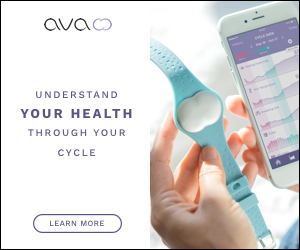
5 Tips for Naturopathic Pre-Conception Care
Planning a pregnancy? If you’re thinking about trying to conceive in the next 3-6 months, you may want to think about a few things first.
1. Folic Acid.
Most women have heard about taking folic acid, but not all folic acid is created equal. Some people carry a gene that makes it difficult to produce the active form of folic acid (5-MTHF) from supplemental folate. This may be especially important to women over 35, or those who have had one or more miscarriages in the past. Talk to an ND about how best to take folate and consider looking for a prenatal vitamin that contains methylfolate instead of folic acid. For more information see our article: What are Folic Acid, Folate, Methylfolate, and MTHFR, and Why Is Everyone Talking About Them?
2. Get to Know Your Cycle.
If you’re newly off of the birth control pill, or aren’t sure of the details of your menstrual cycle – start tracking now! Books such as Taking Charge of Your Fertility are great for explaining what to look for, and websites such as Fertility Friend can be great resources. We also cover all of this info in our Naturopathic Pre-Conception visits. There are many variations of normal, but some things (like an irregular cycle) can make conception more difficult. Talk to your MD and ND about how to address this.
3. Medication & Supplement Check.
If you’re taking any medication, talk to your doctor or pharmacist. Some drugs like acetaminophen are ok during pregnancy, but others (ie. ibuprofen) aren’t recommended. The same is true for most supplements and herbs – check with an ND or knowledgeable health care provider about what’s safe.
4. Clean up your Diet & Environment.
Most women pay special attention to their diet once they find out they’re pregnant, but it’s important to choose wisely during the months leading up to conception as well. Some things like caffeine, can directly impact your chances of conceiving and maintaining a healthy pregnancy. Also try to limit exposure to plastics and other potential hormone disruptors like parabens and pthalates found in many personal care products. Choose things with ingredients you recognize!
Recent research also support a Mediterranean-style diet to support fertility. This is a very healthy diet on many fronts, so we often will work towards making dietary changes in line with this diet.
5. Take it Easy.
Unless you’re over 35, or have a pre-existing condition (such as endometriosis) try to avoid the urge to micromanage the process! Many people conceive within 12 months of well-timed intercourse. Ovulation predictor tests and basal body temperature charting are good tools to know about, but no need to use them right off the bat.
Need more?
Check out our other articles about fertility:
My Two Favorite Herbal Medicines for Infertility
5 things to know before seeing a Naturopathic Doctor for Infertility
Thyroid Health for Moms-to-Be, Moms, and Babies
MTHFR: The Link Between ADD/ADHD, Folate, and Genetics





Pingback: Uncover Who To Get In Touch With To Be Able To Acquire Alternate Options To Medications – Natural Doctors Near Me
September 2, 2017 at 8:09 amPingback: Uncover Who To Get In Touch With To Be Able To Acquire Alternate Options To Medications | Homeopathic Doctor Near Me
September 2, 2017 at 7:31 am